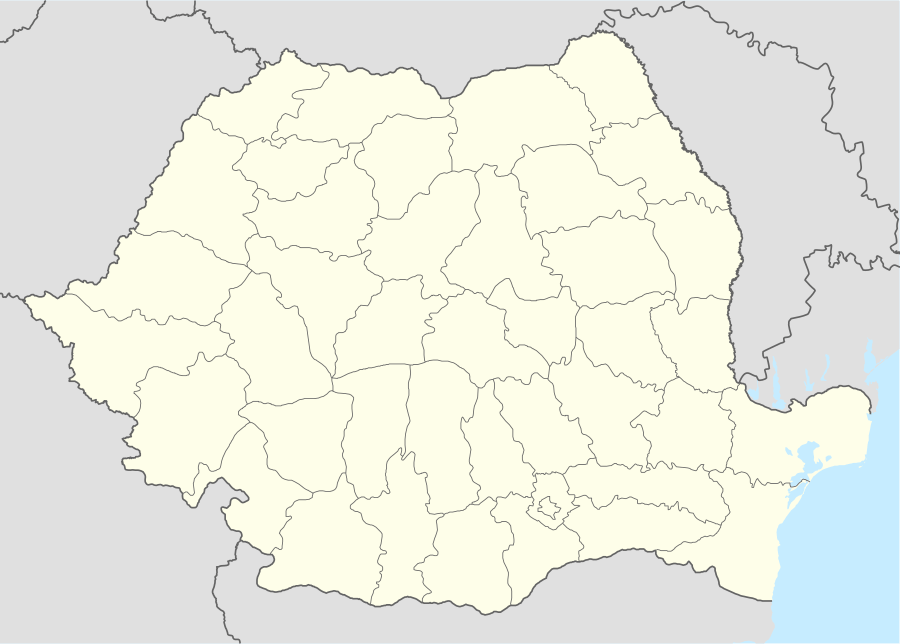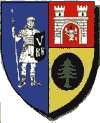Câmpeni
Câmpeni (German: Topesdorf; Hungarian: Topánfalva) is a town in Alba County, Transylvania, Romania. As of July 2002 the town had a population of 8,080 inhabitants. The town administers 21 villages: Boncești, Borlești, Botești (Botesbánya), Certege (Csertés), Coasta Vâscului, Dănduț, Dealu Bistrii, Dealu Capsei, Dric, Fața Abrudului, Florești, Furduiești, Mihoești, Motorăști, Peste Valea Bistrii, Poduri, Sorlița, Tomușești, Valea Bistrii, Valea Caselor and Vârși (Virs).
Câmpeni | |
|---|---|
 Coat of arms | |
 Location in Alba County | |
 Câmpeni Location in Romania | |
| Coordinates: 46°21′45″N 23°2′44″E | |
| Country | |
| County | Alba |
| Government | |
| • Mayor | Ioan-Călin Andreș[1] (PSD) |
| Area | 86.77 km2 (33.50 sq mi) |
| Population (2011)[2] | 7,221 |
| • Density | 83/km2 (220/sq mi) |
| Time zone | EET/EEST (UTC+2/+3) |
| Vehicle reg. | AB |
History
The town has historical significance as the capital of the "Țara Moților" region. It is believed to be the site where the Revolt of Horea, Cloșca and Crișan (1784–1785) started. Horea was born near Câmpeni in the village that used to be called Arada (since renamed to Horea). His cellar is a tourist attraction in the town.
During the Transylvanian revolution of 1848, Câmpeni was the political and military stronghold of Avram Iancu, a revolutionary leader of the Transylvanian Romanians' national movement. The Avram Iancu Museum is located in the town.
Economy
The town is a regional center for lumber exploitation and the furniture industry. Even though the town is located in a mining region the mining industry is not part of its industrial heritage. Câmpeni is growing in popularity as a tourist center.
Demographics
| Year | Pop. | ±% |
|---|---|---|
| 1966 | 7,170 | — |
| 1977 | 7,682 | +7.1% |
| 1992 | 8,878 | +15.6% |
| 2002 | 8,587 | −3.3% |
| 2011 | 6,942 | −19.2% |
| Source: Census data | ||
According to the census from 2011 there was a total population of 6,942 people living in this commune. Of this population, 96.52% are ethnic Romanians, 3.35% ethnic Romani and 0.08% are ethnic Hungarians.[3]
Natives
- Valeriu Moldovan (1875–1954), lawyer and politician
- Rubin Patiția (1841–1918), lawyer and political activist
- Valerian Trifa (1914–1987), archbishop of the Romanian Orthodox Church in America and Canada, former fascist political activist
References
| Wikimedia Commons has media related to Câmpeni. |
- "Results of the 2016 local elections". Central Electoral Bureau. Retrieved 3 April 2020.
- "Populaţia stabilă pe judeţe, municipii, oraşe şi localităti componenete la RPL_2011" (in Romanian). National Institute of Statistics. Retrieved 4 February 2014.
- http://www.edrc.ro/recensamant.jsp?regiune_id=2568&judet_id=2569&localitate_id=2576
